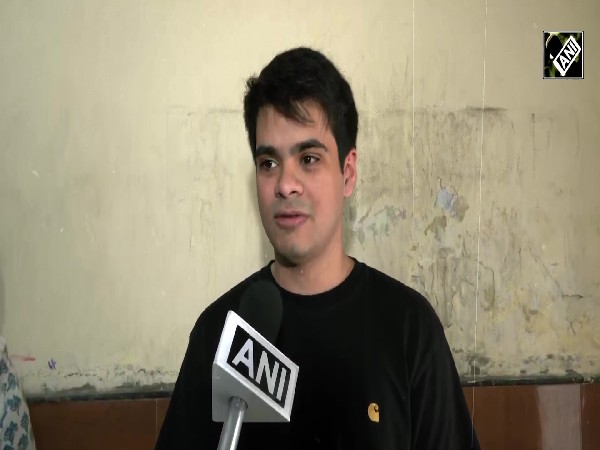The rise of anti-Pakistan sentiment in PoK
Sep 01, 2023

Muzaffarabad [PoK], September 1 : The complete shutter-down strike that was observed across Pakistan-occupied Kashmir (PoK) on August 31 has shaken the foundation of the pro-Pakistan narrative on Kashmir to its core.
It demonstrated that the anger of the masses has forced the puppet prime minister of PoK to come out and issue a statement against increase in tariff and taxes on electricity bills.
Every section of PoK civil society has participated in the protest marches, sit-ins and burning of electricity bills on August 31.
Towards the end of the day a public meeting was held in the centre of Muzaffarabad, the capital of PoK. It was here that confrontation between pro-Pakistan and nationalists erupted.
Some speakers tried to be polite toward Pakistan by appeasing that they were loyal to the Islamic state. The pro-independence nationalists immediately countered them with slogans demanding ‘Azadi’ (independence).
A hot exchange of words and slogans in favour and against Pakistan led to a brief clash in which the nationalists overturned the stage an occupied the space shouting anti-Pakistan slogans such as ‘wasail hamaray, Qabza tumhara: Na Manzoor Manzoor, (your occupation of our resources is not acceptable).
The rising tide of public fury and anger is now resulting in a tsunami of rebellion that could sweep away the current sitting government in both PoK and Pakistan. However, a counter-revolution is also being hatched by the state of Pakistan, which is being facilitated by the government in PoK.
A bill passed in the Senate on August 8 expands the scope of blasphemy law section 298A by adding that any derogatory remarks that aim at the companions and wives of prophet Muhammad will be punishable by 10 years in prison.
An FIR was registered against a Shia leader Agha Baqir Hussian al Hussaini in Skardu sparking protests which went on for days and in which hundreds of thousands of Shia Muslims participated. Similar attempts are underway in PoK. A Tehreek e Tahafuz e Khatam e Nabuwat (TTKN) week is being observed in PoK from September 1 to 9.
On September 6, a debate contests on the finality of the prophet has been scheduled at Dar ul Aloom Taleem ul Quran in Palandri.
On September 7, a massive TTKN public rally is being held at Chakkar College in Jhelum valley. On the same day, a TTKN conference will be held in Dhirkot.
In a joint statement issued by Sunni religious leader Maulana Atiq ur Rehman, Qari Abdul Qayyum, Maulana Imran Hamdani, Maulana Zia ul Haq, Maulana Ejaz Ashrafi, Maulana Abdul Rehman Butt and Maulana Asif Baloch it is categorically stated that September 7 will be the ‘judgment day’ for the Ahmediya who will be issued with a final invitation to accept Islam (read Sunni Islam). This is an open threat of cultural and religious genocide.
Therefore these Maulana must be arrested for inciting religious hate and thrown behind the bars. But on the contrary, the government of PoK is clandestinely supporting these events in order for them to drive public anger against the government towards Ahmediya and Shia religious sect.
The threat of counter-revolution in PoK is a very serious one. Recently a jihadi organisation with a populist name called Kashmir Freedom Movement held a conference in Rawalakot. During the speeches, it was openly declared that they would recruit fresh jihadi from colleges and prepare them for martyrdom.
Currently, Pakistan's economy is undergoing shock therapy. The manual for implementing the dictates of IMF for economic recovery comes with a troubleshooting section as well. It is this ‘trouble’ that is manifesting itself in the form of protests and civil disobedience that will be tackled by applying Islamic religious emotional diverting tactics followed by state repression.
The coming days will play a decisive role regarding the direction the civil unrest in PoK takes. Whether the rise of anti-Pakistan sentiment in PoK progresses in the direction of a full-blown rebellion against the occupation of Pakistan, or it regresses and degenerates into religious fanaticism will depend on how the forces of social change contend for their space in the minds and interpret them on the streets.
Dr Amjad Ayub Mirza is an author and a human rights activist from Mirpur in PoK. He currently lives in exile in the UK.



















